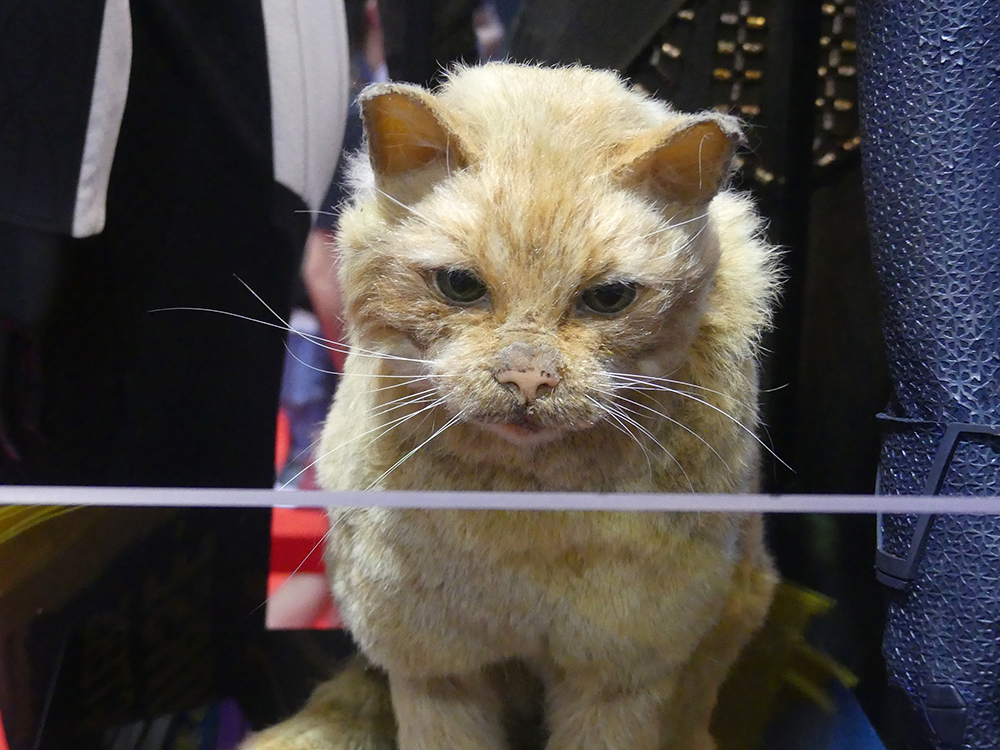Convention - SDCC 2023 : Discover the Marvel comics booth
By Mulder, San Diego, Convention Center, 19 july 2023

Marvel Comics is a legendary and influential publisher that has shaped the landscape of the comic book industry and popular culture as a whole. With its rich history, iconic characters, and groundbreaking stories, Marvel has become synonymous with superhero storytelling, captivating audiences around the world for over eight decades.
Founded in 1939 by Martin Goodman as Timely Publications, Marvel Comics has evolved and grown to become one of the most prominent comic book publishers in the industry. Throughout its history, Marvel has consistently pushed boundaries, introducing innovative characters, exploring complex narratives, and tackling social issues with a unique blend of action, drama, and relatability.

One of the defining aspects of Marvel Comics is its vast roster of compelling characters. From the web-slinging Spider-Man to the invincible Iron Man, the mighty Thor to the patriotic Captain America, and the mutant superheroes of the X-Men, Marvel's pantheon of characters is diverse, inclusive, and reflective of the world we live in. These characters, with their distinctive personalities, struggles, and motivations, have resonated with readers of all ages, allowing them to connect on a deep and personal level.
Marvel's ability to create flawed and relatable characters has been a driving force behind its success. Many Marvel superheroes and villains grapple with real-life issues such as identity, morality, and the consequences of their actions. This emphasis on character development and emotional depth has elevated Marvel's storytelling beyond mere spectacle, making it more than just tales of superhuman abilities but explorations of the human condition.

Throughout its history, Marvel Comics has produced numerous groundbreaking storylines that have redefined the superhero genre. From the tragic death of Gwen Stacy in "The Night Gwen Stacy Died" to the epic "Infinity Gauntlet" saga and the groundbreaking "Civil War" event, Marvel has consistently pushed the boundaries of storytelling and challenged readers' perceptions of what superhero comics can be. These stories have tackled themes of power, responsibility, social justice, and the complexities of the human experience, resonating with readers on a profound level.
Marvel's commitment to diversity and inclusion has also been a hallmark of its storytelling. The introduction of characters like Black Panther, Storm, Ms. Marvel, and Miles Morales as Spider-Man has provided representation and empowered marginalized communities. Marvel Comics has embraced the importance of reflecting the diversity of the world and has worked to create stories that speak to a broad range of readers, fostering a sense of inclusivity and allowing individuals from all backgrounds to see themselves as heroes.

Beyond the comic book pages, Marvel's influence extends to other forms of media. The success of Marvel's characters and stories in comic books has led to adaptations in film, television, animation, and video games. The Marvel Cinematic Universe (MCU), in particular, has become a global phenomenon, captivating audiences with its interconnected storytelling, memorable characters, and epic scale. The success of films like "Iron Man," "The Avengers," and "Black Panther" has propelled Marvel's superheroes to new heights of popularity and cultural significance.
Marvel Comics has also been at the forefront of innovation within the industry. It has pioneered new storytelling techniques, embraced digital platforms, and experimented with different formats to engage readers in exciting and interactive ways. From crossover events that span multiple comic book titles to the introduction of digital-first releases and immersive augmented reality experiences, Marvel continues to push the boundaries of what is possible in the realm of comic book storytelling.

The impact of Marvel Comics reaches far beyond the realm of entertainment. Its characters and stories have inspired generations, fostering a love for reading, imagination, and creativity. The themes explored in Marvel's narratives have sparked discussions and encouraged critical thinking, addressing societal issues and reflecting the cultural climate of their time.
In conclusion, Marvel Comics stands as a titan in the comic book industry, with its vast universe of characters, compelling storytelling, and commitment to inclusivity and innovation. Its influence on popular culture is immeasurable, shaping the way we perceive superheroes and their narratives. Marvel's enduring legacy is a testament to the power of storytelling and its ability to inspire, entertain, and connect with audiences of all backgrounds. As Marvel continues to evolve and expand its universe, its impact will undoubtedly continue to shape the world of comics and entertainment for generations to come.

You can discover our photos on our Flickr page
Photos and video : Boris Colletier / Mulderville

